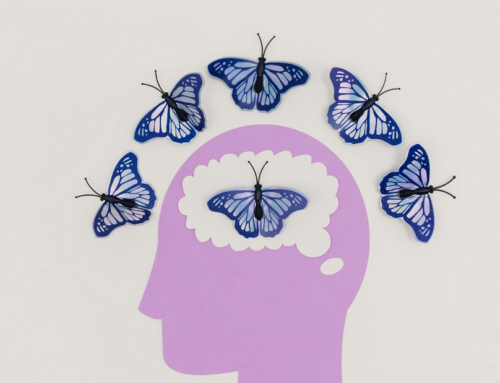The coronavirus pandemic has had a profound impact on our nation’s mental health. For many children and adults who already struggled with anxiety-related conditions, the changes and isolation associated with the pandemic has made their conditions worse. For people who did not previously have an issue with anxiety, many have found themselves exhibiting symptoms.
Symptoms of an anxiety disorder aren’t always severe. In fact, mild symptoms can be easily mistaken for another emotional response, such as stress. Are you concerned that you or your child might be experiencing anxiety symptoms? Here are some commonly ignored signs of anxiety:
Aches and Pains
Stomach aches and headaches aren’t uncommon symptoms in children, but when they become increasingly frequent, they might be a sign of an anxiety problem. This is especially true if your child complains of aches and pains just before an anxiety-inducing event, like before school or the day of a math test.(1) Teenagers and adults, too, can experience physical symptoms related to an anxiety disorder. If your child is frequently complaining of unexplained stomach aches or headaches, take them to the pediatrician for a thorough examination.
Racing or Pounding Heart
Heart palpitations are when you feel like your heart just skipped a beat. You might feel a slight pause and then a jolting feeling as your heart speeds up again. These can be caused by everything from too much caffeine and too little sleep to an anxiety disorder. Panic attacks, in particular, can result in sudden, extremely high heart rates.(2) This is the body’s response to an adrenaline surge, and it can be scary enough to make sufferers feel like they are having a heart attack. You might also experience other symptoms, like dizziness, faintness, or tingling in your hands and feet, if you’re having a panic attack.
If you’re experiencing symptoms related to your heart rate, or your child is complaining of such symptoms, it’s extremely important to be checked out by a physician. Usually, the cause of a racing heart is harmless, but there is always the possibility that there is an actual heart condition going on. Plus, if the problem is panic disorder or anxiety, there are treatments and therapies available that can help.
Intrusive Thoughts
Intrusive thoughts are one of the hallmarks of Obsessive-Compulsive Disorder. Intrusive thoughts are sudden mental images that are incredibly distressing to the person who is experiencing them.(3) They often include violent or inappropriate imagery that causes great fear and shame. If you struggle with intrusive thoughts, reaching out to a mental health professional can make a difference.
Replaying Scenarios In Your Mind
Replaying conversations, worrying about social mistakes, or practicing future social scenarios in your mind can all be symptoms of social anxiety disorder. Students with social anxiety might freeze up when called on by the teacher at school, do worse work while being watched, or perform poorly on tests.(4) Fear of failure or embarrassment plays a role in social anxiety. However, because most of us want to perform well in social situations, it’s easy to brush off social anxiety disorder as something that everyone experiences. If your social anxiety is controlling your life, or if you notice social anxiety impacting your student, speaking to a specialist can help.
Difficulty Concentrating
Anxiety can make it difficult to focus on work or school.(5) If you notice that your student is struggling to concentrate on assignments, it’s important to ask questions about how they’re feeling. If anxiety or overwhelming feelings are the cause of their distraction, then contacting a therapist is a reasonable next step.
Trouble Sleeping
Anxiety, as well as other mental health disorders, can change a person’s sleeping patterns.(5) You might find yourself sleeping more or less. You might also find it difficult to “turn off your mind” before falling asleep, or have difficulty staying asleep.
If you or your child is experiencing symptoms of an anxiety condition, it’s important to contact a qualified mental health professional.
NeuroBehavioral Associates: Providing Services for Cognitive, Learning, and Neurodevelopmental Differences
NeuroBehavioral Associates maintains a strong referral network for clients experiencing a variety of conditions. We provide children, teens, and adults with comprehensive neuropsychological assessments that allow us to recommend an appropriate intervention or treatment plan. We also offer therapy options for families of children with autism spectrum disorder, as well as ADHD and executive function challenges.
NeuroBehavioral Associates remains open. We are providing in-office, low-contact assessments, as well as telehealth services. Call 410-772-7155 or email us today to schedule an appointment.
References:
- Miller, C. (2020, May 13). Anxious Stomach Aches and Headaches. Retrieved September 16, 2020, from https://childmind.org/article/anxious-stomach-aches-and-headaches/
- National Institute of Mental Health (2016). Panic Disorder: When Fear Overwhelms. Retrieved September 16, 2020, from https://www.nimh.nih.gov/health/publications/panic-disorder-when-fear-overwhelms/index.shtml
- Seif, M., Winston, S. (n.d.). Unwanted Intrusive Thoughts. Retrieved September 16, 2020, from https://adaa.org/learn-from-us/from-the-experts/blog-posts/consumer/unwanted-intrusive-thoughts
- National Institute of Mental Health (n.d.). Social Anxiety Disorder: More Than Just Shyness. Retrieved September 16, 2020, from https://www.nimh.nih.gov/health/publications/social-anxiety-disorder-more-than-just-shyness/index.shtml
- Mayo Clinic Staff (2017, October 13). Generalized anxiety disorder. Retrieved September 16, 2020, from https://www.mayoclinic.org/diseases-conditions/generalized-anxiety-disorder/symptoms-causes/syc-20360803






